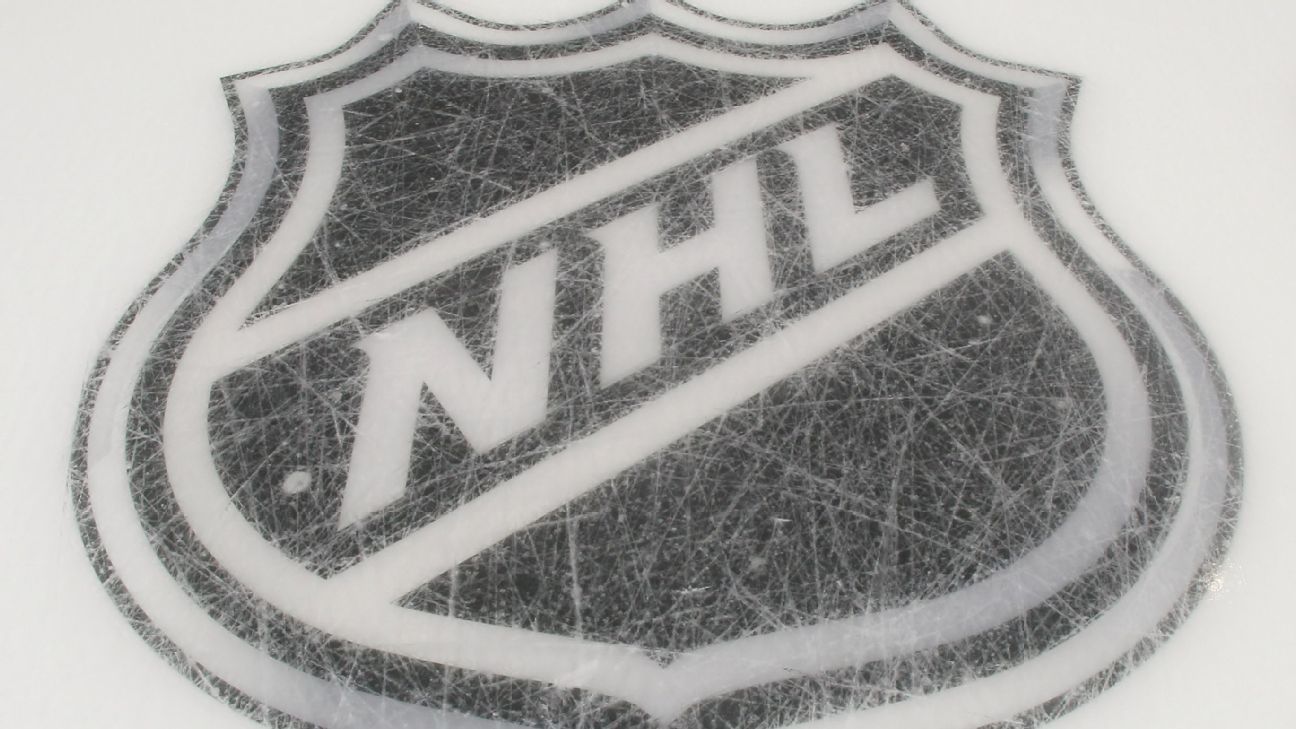Josh Bailey of the New York Islanders called it “normalcy.” Matt Benning of the Edmonton Oilers called it “different.” The reopening of NHL training facilities this week, for the teams that opted to participate, had players feeling a mix of emotions.
The NHL announced last week that it had moved into Phase 2 of its “return to play” protocol, with teams given the green light to open their training facilities for players with COVID-19 restrictions in place. A maximum of six players can train at the team facilities at once. On-ice sessions are for players only, with no coaches or other team personnel allowed in the rink. Players must wear face coverings at all times, except when they are exercising or on the ice.
Participation is voluntary. Many players have chosen to remain in their self-quarantine locations to train, rather than returning to team cities. Among the factors in those decisions: Availability of gyms and ice; travel quarantine considerations, as players who enter Canada or return to any home city via commercial travel must quarantine for 14 days; and being able to train without facing the frequent testing and temperature checks at team facilities.
The testing protocol for team facilities involved an initial COVID-19 test before players could return to training centers. Players have been told to self-conduct temperature and symptom tests daily, which will be logged. There are also temperature checks at the facilities. COVID-19 tests for participating players are expected to be bi-weekly.
“It was a pretty easy test,” said Bailey.
The Islanders had four players — Bailey, Matt Martin, Cal Clutterbuck and Thomas Greiss — at the Northwell Health Ice Center as Phase 2 started on Monday.
“It was nice to just get back in there. It’s a familiar place for us and nice to get back on the ice too. It’s obviously been a while and we’re comfortable out there, so it was nice to feel the puck. We didn’t go too crazy on Day 1, but none the less it was fun to get out there,” said Bailey.
He said that every player had a different training experience during the “stay at home” quarantine. “Some guys had home gyms. Some didn’t. You do everything you can to be ready. But there’s no substitute for skating,” he said.
The Toronto Maple Leafs returned to the Ford Performance Centre on Monday with multiple groups of players skating. Toronto star John Tavares said on Tuesday that the limited amount of time the players were allowed at facilities was a change.
“There’s a pretty big-time crunch on being in the arena; you only have about 45 minutes to an hour to complete your workout and you’ve got about 40 minutes on the ice,” he said, adding that he actually brought his sticks home to tape them in order to save time at the facility.
The Islanders and Leafs joined the New York Rangers, Tampa Bay Lightning, Vegas Golden Knights, Pittsburgh Penguins and Edmonton Oilers in opening up facilities in the first two days of Phase 2. The Oilers posted video of their players returning for on-ice workouts.
What a beautiful sight! 🤩
Chiasson, Benning, Russell, Benson & Skinner hit the ice at @RogersPlace this afternoon as #Oilers players are now permitted to train in small groups per Phase 2 of the @NHL‘s Return to Play Plan. pic.twitter.com/R8CBqbleU0
— Edmonton Oilers (@EdmontonOilers) June 8, 2020
“Today, I had that same feeling of my first (NHL) training camp, not knowing (what to expect),” Benning said, via NHL.com. “I mean, obviously we had guidelines and that sort of thing, there are people there to help us through and make sure we’re doing the right things to stay safe and wearing masks and proper hygiene and that sort of thing. It was exciting to get back to the rink, but it was a different feeling. There are a lot of things we had to do in order to be safe and enjoy the facility.”
Some teams, like Arizona, are expected to reopen later this week. Other teams aren’t planning on opening facilities anytime soon during Phase 2. Montreal, Carolina and Vancouver all cited a lack of demand from players, many of whom are training elsewhere.
There’s still an expectation that Phase 3, the opening of formal NHL training camps, won’t happen until early July. Tavares, who serves on the joint NHL/NHLPA return to play committee, expects that Phase 2’s participation numbers will gradually grow in anticipation of that.
“It only makes sense that eventually the groups are going to expand here in Phase 2. To go from only seeing six guys and three or four staff members to possibly seeing 40 people at training camp doesn’t really make a whole lot of sense, in the progression way of things,” said Tavares.
